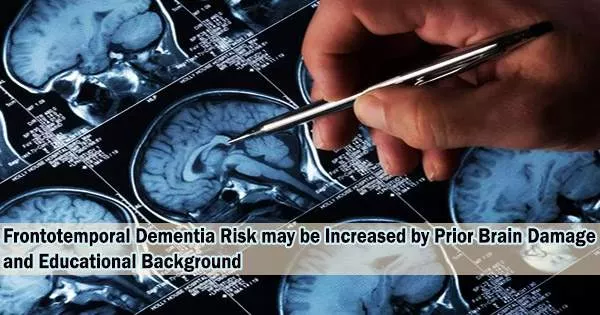Two new studies from the University of Eastern Finland suggest that prior traumatic brain injury and educational background may have an impact on the likelihood of frontotemporal dementia.
One of the most prevalent types of dementia in persons in their working years is frontotemporal dementia (FTD). Depending on the subtype, FTD spectrum illnesses have a significant impact on behavior, verbal abilities, and cognitive processes.
Numerous genetic alterations have been linked to these ailments, but less is known about their non-genetic risk factors, which may be modifiable and hence preventive.
According to a recent study conducted at the University of Eastern Finland, patients with frontotemporal dementia were, on average, less educated than patients with Alzheimer’s disease.
In addition, compared to FTD patients with a mutation, FTD patients without the mutation had lower levels of education and a higher prevalence of cardiac disease. All of the most prevalent FTD subtypes were represented in the substantial data collected from more than 1,000 patients, including patients from Finland and Italy.
The study included a control group that had no diagnosis of any neurodegenerative disease in addition to patients with FTD and patients with Alzheimer’s disease. The results were reported in Annals of Clinical and Translational Neurology.
According to the study, patients with various FTD subtypes as well as those who have hereditary and non-genetic diseases appear to differ in terms of a number of risk variables.
According to a second study, persons without a genetic mutation that causes FTD may be at higher risk of developing FTD if they had experienced prior traumatic brain damage.
Additionally, patients who had sustained a head injury appeared to experience FTD earlier on average than other patients. The researchers made comparisons between Finnish FTD patients, Alzheimer’s patients, and healthy controls. Journal of Alzheimer’s Disease published a report on the findings.
“These results offer a better understanding of the disease mechanisms and, possibly in the future, an opportunity to prevent frontotemporal dementia,” says Doctoral Researcher and lead author of both articles Helmi Soppela of the University of Eastern Finland.
















